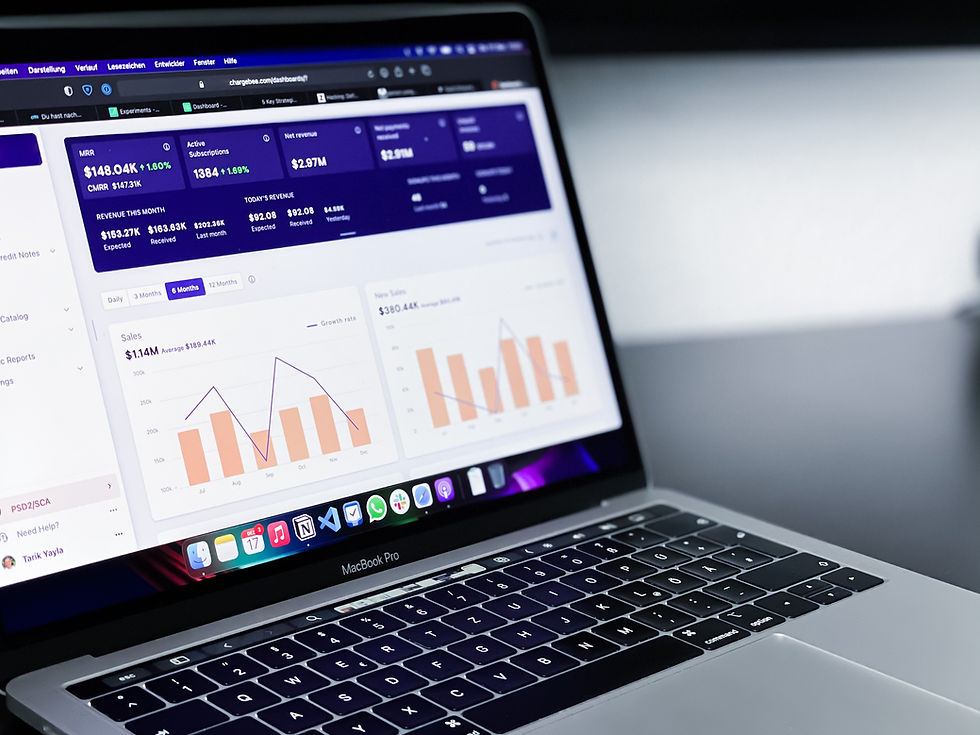Getting Started with Marketing Automation: A Guide for Small Business SaaS
- Boubaker Rjeb

- Sep 6, 2023
- 2 min read
Updated: Apr 12
Navigating the software-as-a-service (SaaS) world can be complex for small businesses. Many startups need help to gain traction with limited resources and tight budgets. However, the rise of marketing automation presents a golden opportunity for small SaaS businesses to maximize their reach, enhance user experience, and drive revenue.

What is Marketing Automation?
At its core, marketing automation refers to using software tools and technologies to automate repetitive marketing tasks, streamline workflows, and measure the impact of marketing campaigns. From sending targeted emails to segmenting your audience and nurturing leads, automation can transform how small businesses approach marketing.
Why is Marketing Automation Crucial for Small Business SaaS?
Scalability: Automation allows small businesses to manage and nurture many leads without increasing workload or overheads.
Personalization at Scale: Deliver personalized experiences to customers based on their behaviors and preferences, increasing engagement and conversion rates.
Enhanced Data Analysis: Automatically track key metrics, providing insights to optimize campaigns for better ROI.
Resource Efficiency: With automation, startups can achieve more with fewer resources, a critical consideration given their typically lean operational models.
The Challenges and Opportunities in Marketing Automation for Startups
Challenges:
Initial Setup and Learning Curve: Automation tools, while powerful, can initially seem complex. The setup and familiarization phase can be daunting for those new to the ecosystem.
Budget Constraints: Premium features of leading automation tools might be out of reach for bootstrapped startups.
Maintaining Authenticity: Avoiding the pitfall of appearing robotic or impersonal to users is crucial.
Opportunities:
Hyper-targeted Campaigns: Automation allows startups to segment their audience finely, delivering hyper-relevant content and boosting engagement.
Improved Customer Journeys: Automated onboarding processes, feedback loops, and support can greatly enhance user experience.
Rapid Iteration and Optimization: Startups can quickly tweak and optimize their campaigns based on real-time feedback and metrics, a key competitive advantage.
First Steps in Implementing Marketing Automation for Your SaaS
Define Your Goals: Understand what you aim to achieve. Whether boosting user engagement, increasing conversion rates, or enhancing customer support, having clear objectives is paramount.
Choose the Right Tool: Research an automation platform that aligns with your budget and goals. Many platforms offer startup-friendly pricing or even freemium models.
Segment Your Audience: Categorize your users based on behavior, demographics, and preferences. This segmentation is foundational for targeted campaigns.
Map Out Automation Workflows: Design the journey you want your users to take, from onboarding emails to renewal reminders.
Monitor, Test, and Optimize: Continuously measure your campaigns' impact. Use A/B testing to iterate and improve.
Conclusion
In the ever-evolving SaaS landscape, marketing automation's potential remains vast. For startups and small businesses, embracing automation can be the catalyst that propels them to new heights. While challenges exist, the opportunities far outweigh them. By understanding the basics, choosing the right tools, and continually optimizing, small business SaaS can harness the power of automation to achieve remarkable results.





Commentaires